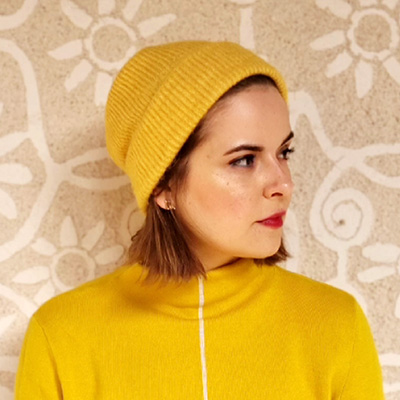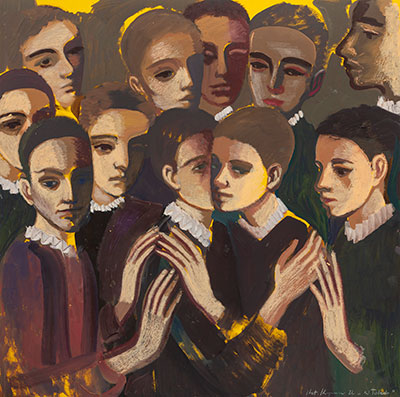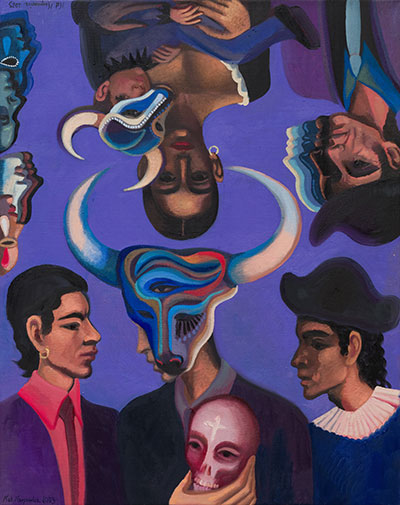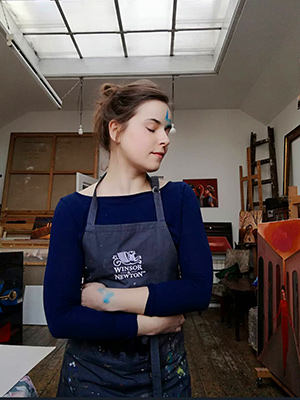Maurin
Maurin
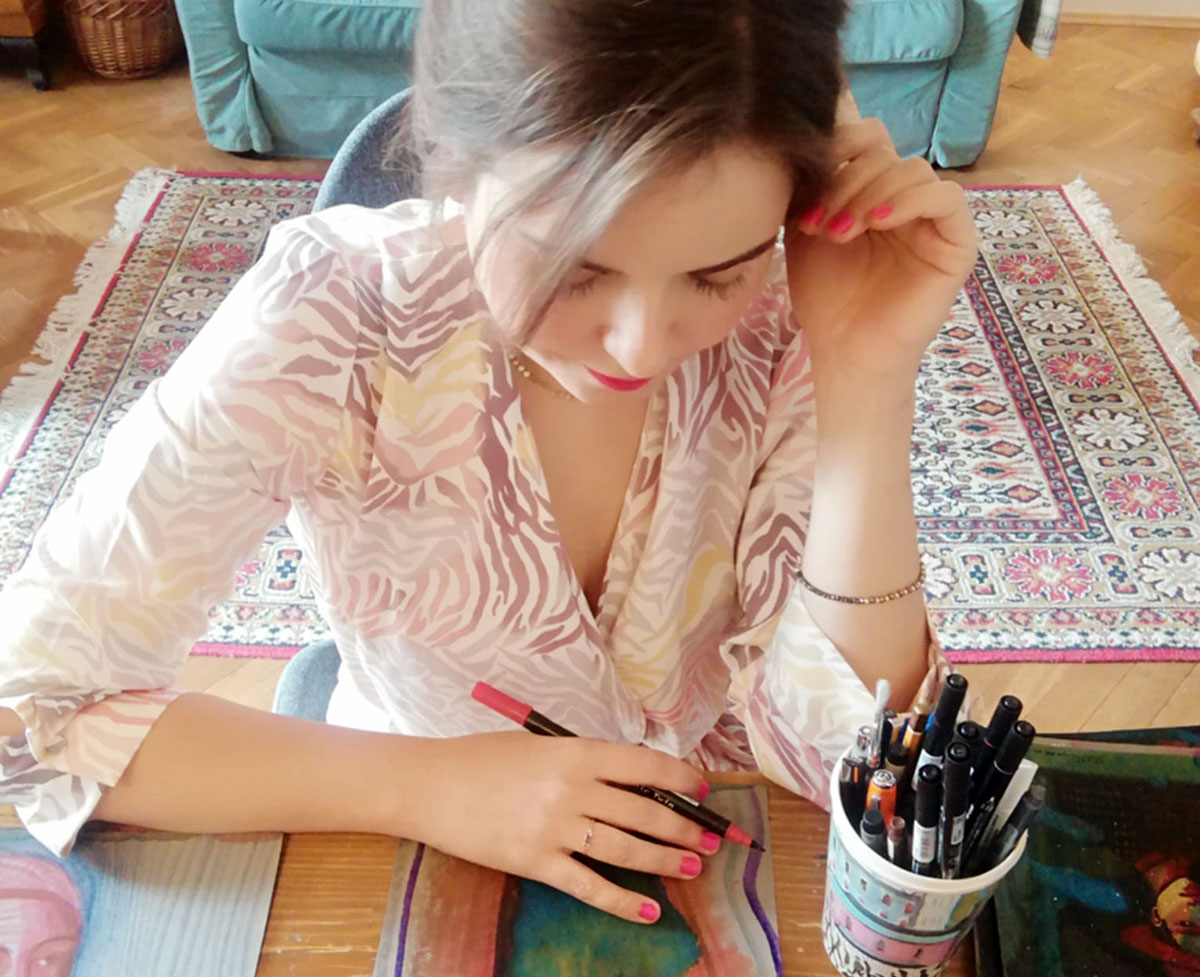
Writer and literature researcher Eliza Kącka took a look at the Maurin exhibition and added stories to several selected paintings in perverse miniatures.
Katarzyna Karpowicz’s narrative paintings are practically begging for a literary story.
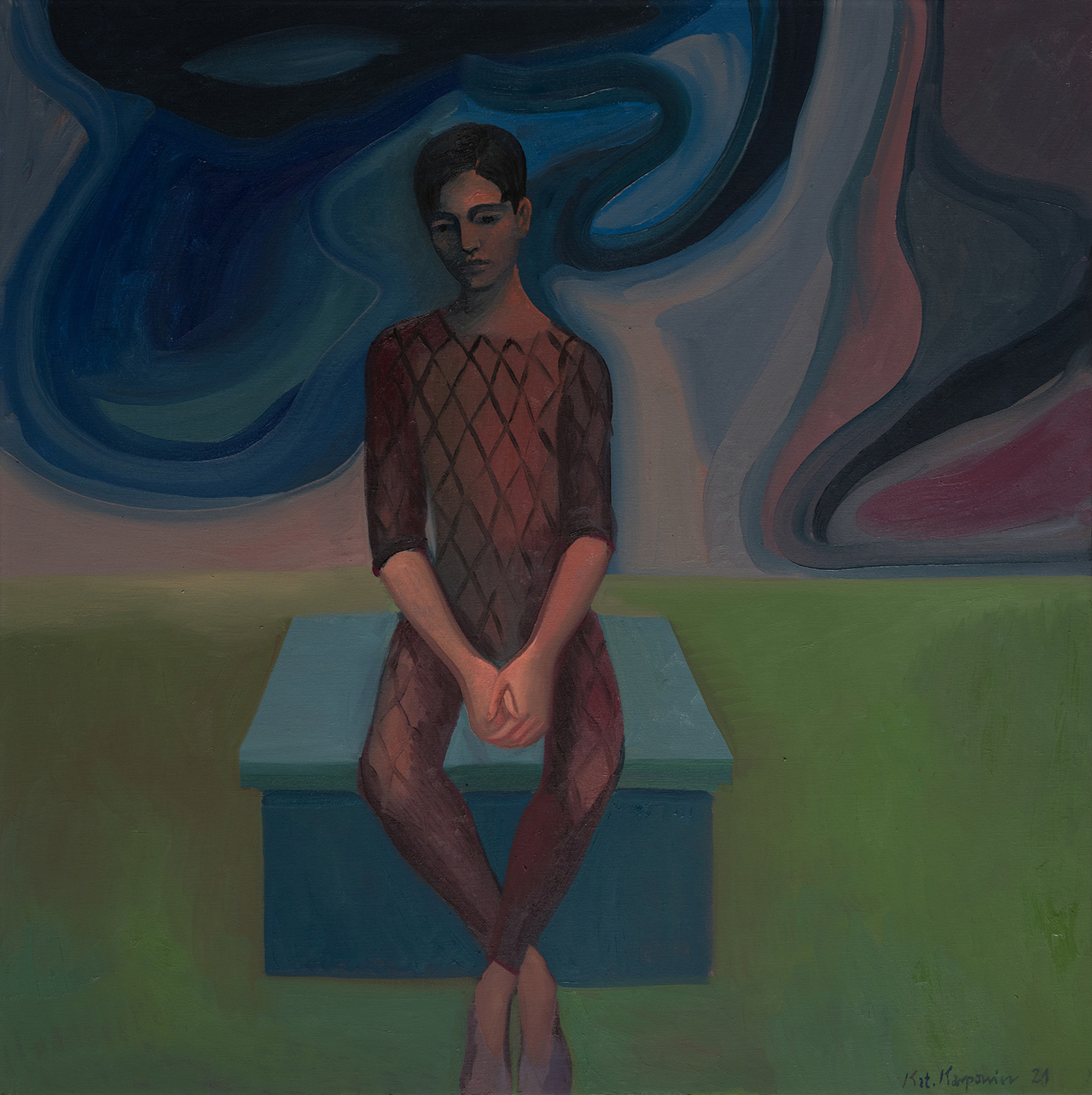
Wartezimmer
They were part of a troupe that worked for Picasso. He didn’t pay much, but here with him and for him, they learned how to balance on a ball, dance on a wooden pole, gracefully wear a black bicorne (…)
They were part of a troupe that worked for Picasso. He didn’t pay much, but here with him and for him, they learned how to balance on a ball, dance on a wooden pole, gracefully wear a black bicorne and costumes decorated with diamond shapes. They seduced the gentlemen and delighted the ladies. They were trained every day by a man from whom you could carve five or ten others like them. The athlete sat half-naked on a stone and waited for hours until they caught their balance, until they danced confidently enough to be shown to people. Like them all, they knew that the circus, this entertainment of the crowds, required surgical precision of gesture. It was during the rosy period of their life, when lymph and blood pulsed blue under the skin, when the capillaries of the human man and the world merged into a blue weave. Even the roses had blue vessels then, so much so that the blue infected the red of the flowers and the green of the leaves, taking them into its melancholic possession. And yet they were not sad, on the contrary, they persisted in a joyful stirring of playfulness, poses and gestures that stood still in the pastel. After the performance, a woman always came up. She would call them “my boy” and urge them to tie her shoe, and as they approached, she would pull up her skirt. They fled then. They fled like they did under the sight of a man who knocked occasionally on their wagon and whispered: “I will awaken the woman in you”. They were afraid of everyone except their trainer and Mr Pablo, who painted them in various poses. Picasso, however, said one day that it was over. They cried a lot. They decided not to move from there, to stay on one of the stone seats and wait until he returned. And the navy blue, lined with black, turned blue again.
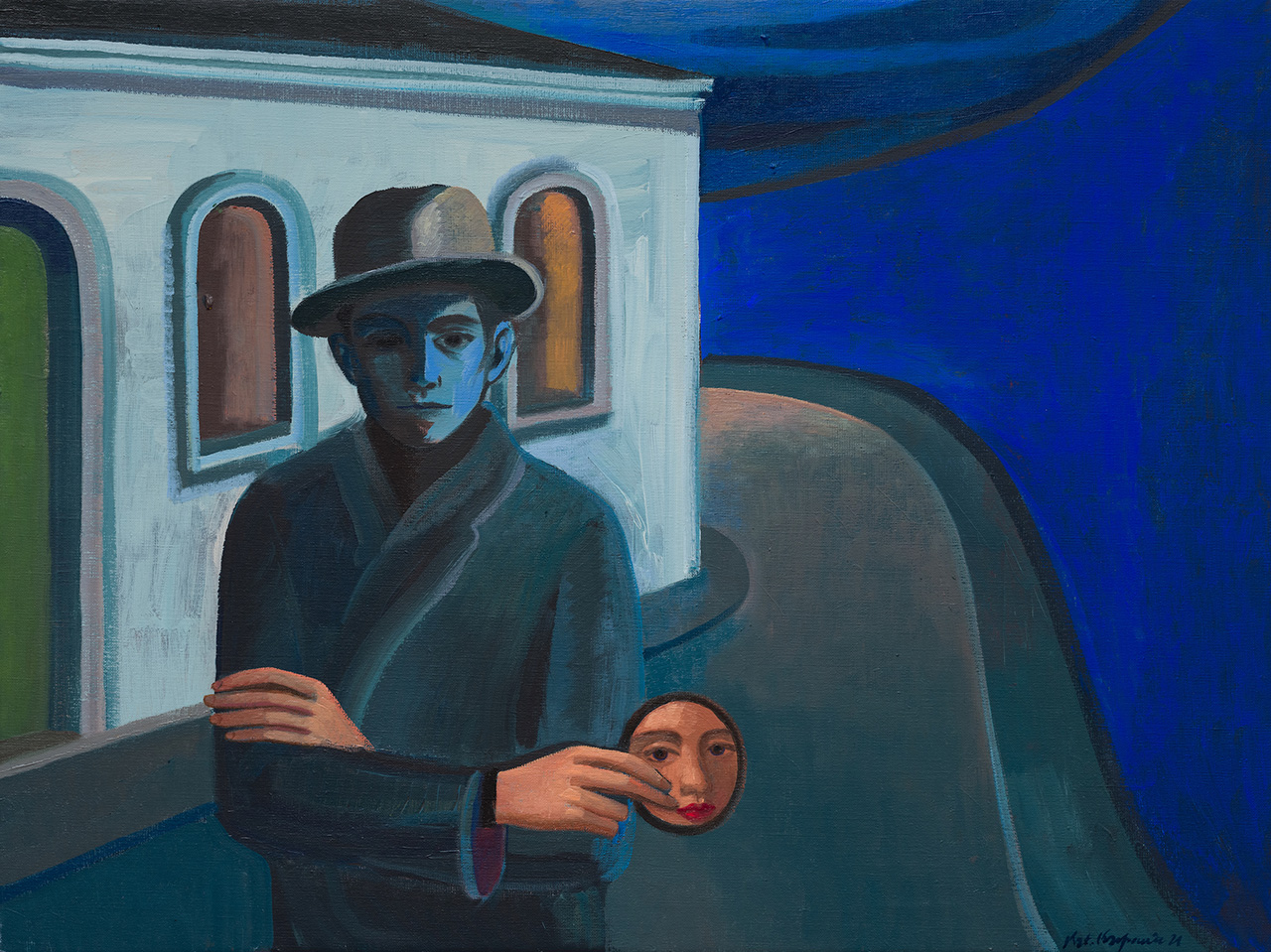
Geliebte
When the walls of the town approach ultramarine, Mr X comes out onto the streets. You won’t meet him while the box of the day is still slightly ajar and the sun’s reflector wanders across the (…)
When the walls of the town approach ultramarine, Mr X comes out onto the streets. You won’t meet him while the box of the day is still slightly ajar and the sun’s reflector wanders across the walls. Mr X does not trust the play of lights, he is frightened by the vibrating blue; he is intimidated by the expansion of brightness. What brings other residents out to the squares, arrests him within a few metres of rounded melancholy (Mr X lives modestly behind a neighbouring bend, for the town has no corners or edges). No one looks into Mr X’s flat, and the owner never looks out of his window. A girl with green eyes, passing by, once saw a dark silhouette the size of Mr X hanging head down from a coat rack; most likely it was just a coat with a hat. However, as the ceiling of the town slowly begins to gain the shade of the walls and everyone takes cover for fear of losing their shadow, Mr X appears against the backdrop of the houses. Pale and blue, cloaked, he begins his unhurried patrol. It is said he is not to be feared, and yet no one will come out to meet him. All because of the mirror he holds in his right hand. No, it is not himself he is looking at. He turns the mirror to face the city. You heard right: face, because you always see someone’s face in a mirror. Residents catch sight of it from afar, but don’t want to get too close. For the person reflected goes away without a face.
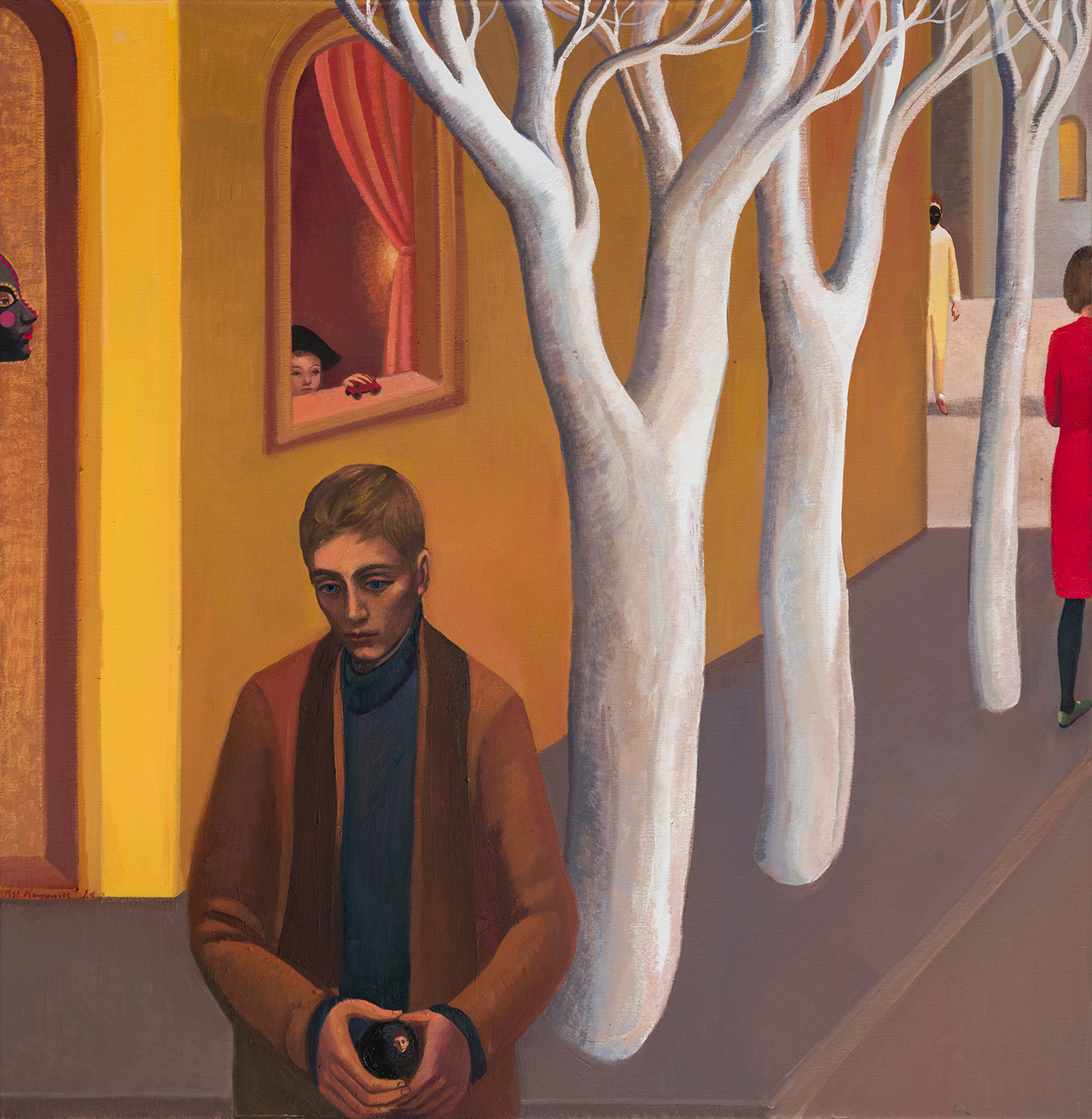
Zwischen Vergangenheit und Zukunft
There is a town where everyone walks around with their eyes downcast. They have no material worries, and one could even vouch that there are none richer in the whole kingdom. Despite this, they are (…)
There is a town where everyone walks around with their eyes downcast. They have no material worries, and one could even vouch that there are none richer in the whole kingdom. Despite this, they are not happy and whenever they can, they dwell on the days of their childhood, which they call the “before times”. Or with trepidation, they think of old age, which they call the “after time”. They live in hope that they can still, like children, lift their chins up and laugh out loud. The black magician assures him that he knows a spell for memory loss – and that it is the only way. They will come to him when the time rolls around. They will forget why the trees have turned grey. They will also forget about childish games. Above all, however, they will forget the reasons for their wealth – and their sadness. And this sadness is rooted in their profession. What they make are beautiful astral lamps, exclusively for export. They send them farther and farther away, because the surrounding towns no longer place orders. No two lamps are alike, and their light, celadon and pink, is more beautiful than their shape. Whoever experiences it once, throws away all other lamps. They also rarely leave their house. The nights brightened by the astral glow get longer and longer and the days get paler and paler. Such a person hates the sun but, fortunately, does not suffer long. They are buried with the lamp in their hands.
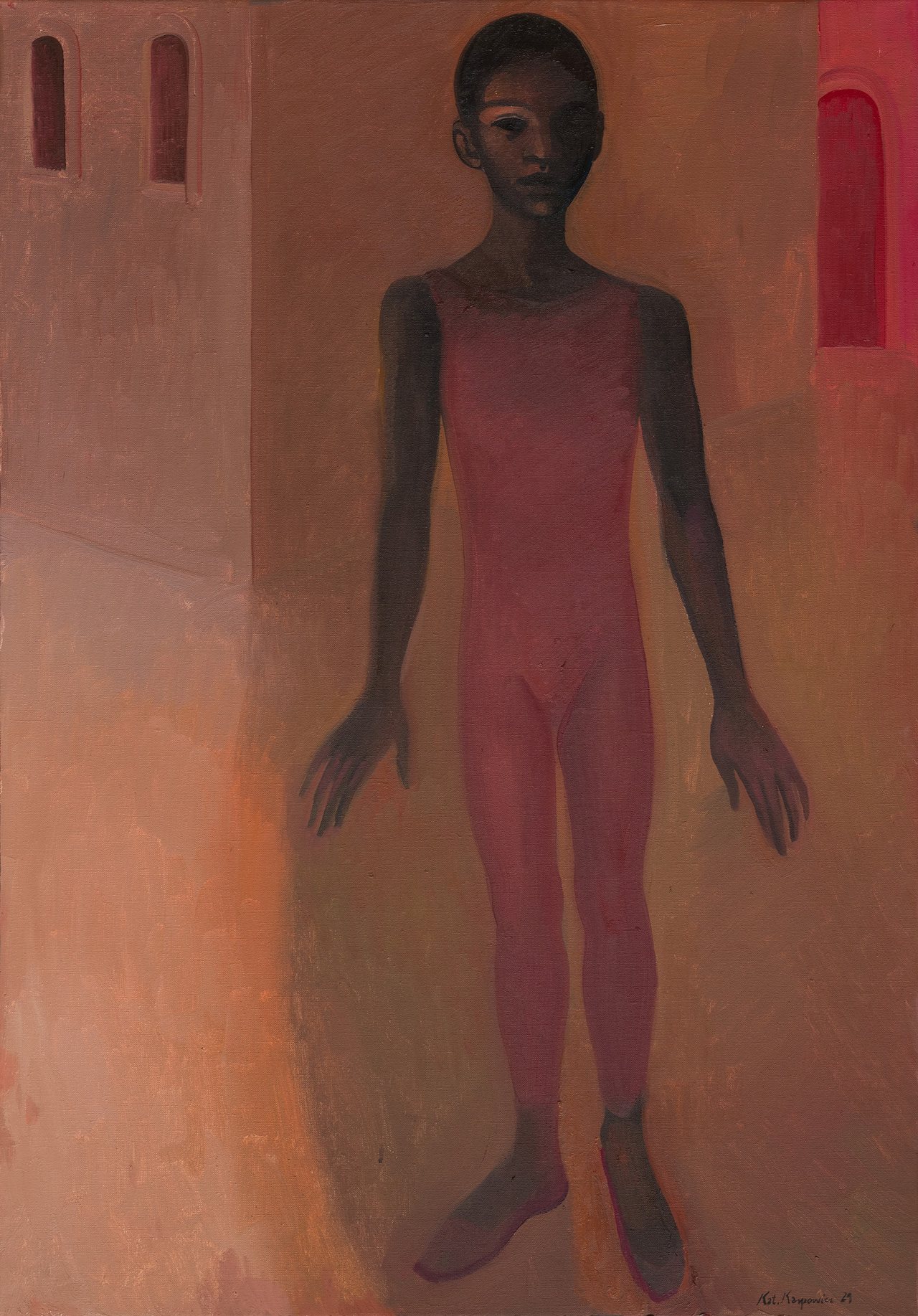
Wenn die Träume wahr werden
I am the spirit of the hourglass. I haunt the dreams of the home-dwellers, unaware of what lurks in objects, what worlds hide behind the walls of things, under the skin of wood, plastic, under the (…)
I am the spirit of the hourglass. I haunt the dreams of the home-dwellers, unaware of what lurks in objects, what worlds hide behind the walls of things, under the skin of wood, plastic, under the glass skin. Who has already visited the clock or the thermometer? My cousin, the spirit of the clock, opens the dark corridors at night. Have you already dreamt of running away from no one? Around the corner another corridor and corner, faster, faster. Do you know what that was? You raced against time in the belly of the wall clock. And have you been to the shore of the lazy sea, on the edge of a wave churning into a dark blue wall? Just a milky glow, a coldness, and a metallic aftertaste. Clearly the spirit of the thermometer has taken you on a tour. None of you has turned the hourglass in a long time, but I can turn your dream. Enter my houses, it is bright in the womb of the sand. Your astral bodies will climb to the windows, take a breath of red and slide softly down. You will wait with me, slightly levitating, for the world to run down. When the sand moves, we too will fall, whirling, into mouth of the hourglass, into a warm storm from which houses will rise again and light will be born. Only the dust of our migration will remain in the upper chamber above us, ready to welcome the city again one day. Turn the hourglass before bedtime and you’ll wake up happy, with a taste of sand in your mouth.
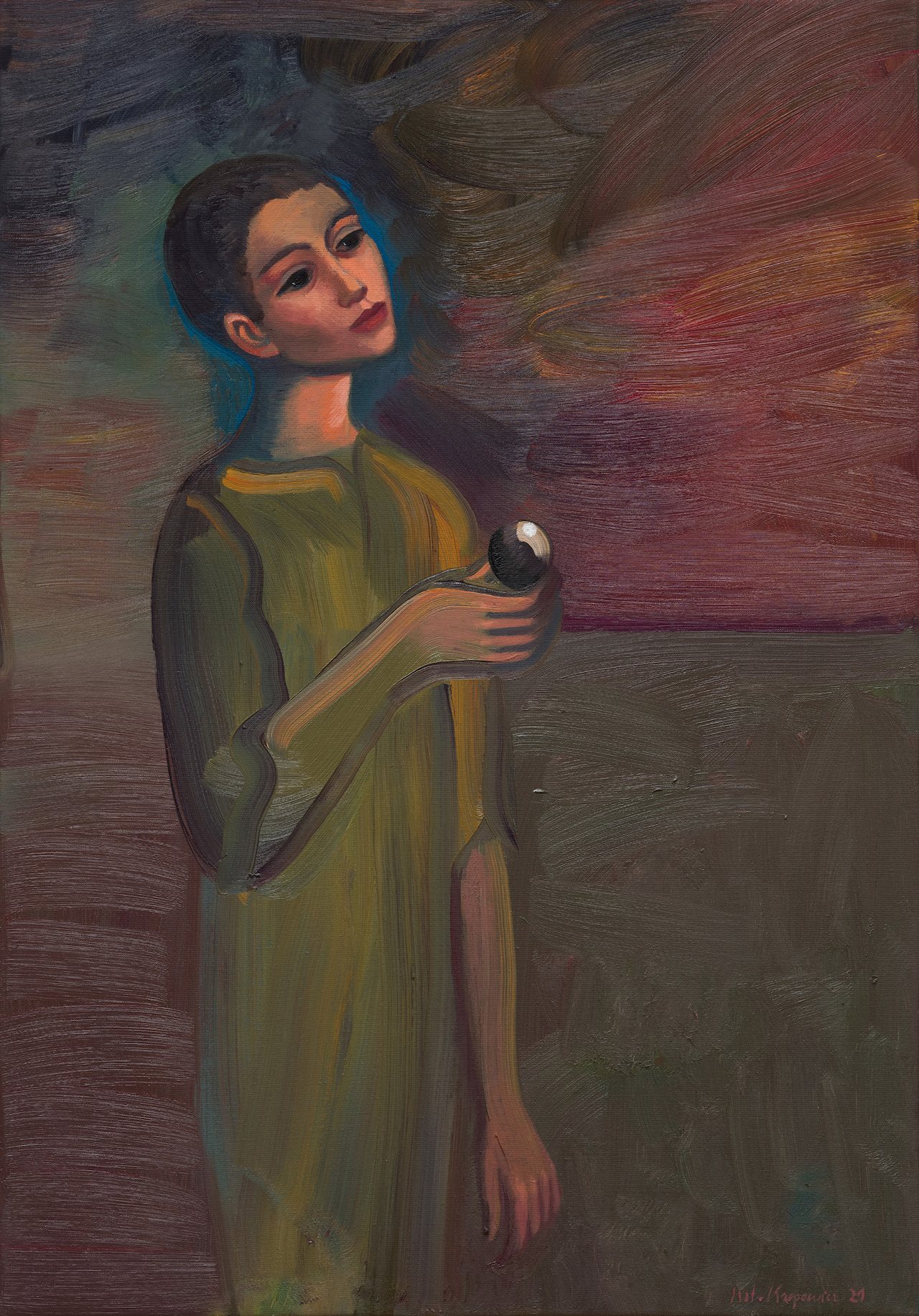
Träumer
When spheres intersect, they experience anxiety. They pull the ball out of the box and wait for the black to be overgrown with silver. A tingling chill under the fingers betrays the imminent (…)
When spheres intersect, they experience anxiety. They pull the ball out of the box and wait for the black to be overgrown with silver. A tingling chill under the fingers betrays the imminent moulting, the revelation of a metallic soul. When the first speck hatches from the blackness, they go to expose it to the moonlight. It is its veiled silver that cuts the horizon, stirs the spheres, excites the auras of women and the souls of objects. They walk, holding the fruit of their sorrow in their hand. They go and wait until everything has gone silver. Then a poem will be born.
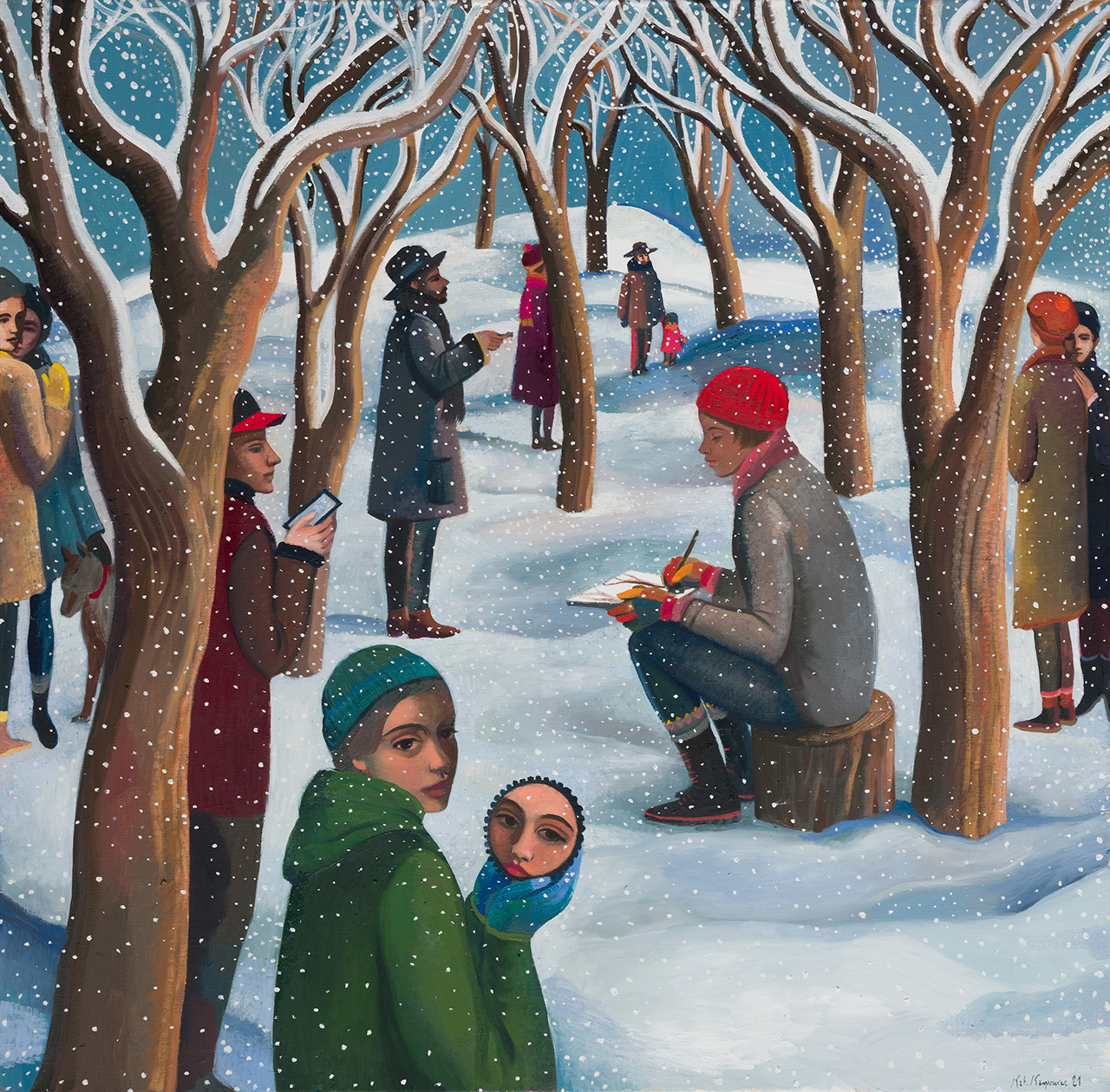
Ich wünschte, du wärst hier
She took the ball in her hands to get it started. The gentleman in the hat felt the snow on his still hand again. The grandfather and grandson did not move – the moment was solemn. The boy watched (…)
She took the ball in her hands to get it started. The gentleman in the hat felt the snow on his still hand again. The grandfather and grandson did not move – the moment was solemn. The boy watched as the smartphone screen responded to the touch of thickening white. The dog buried its paws in the snow with joyful tension in its stiff neck. The girls, leaning in towards each other, were frozen in static hope. The maiden in the green coat froze, not without emotion, as the face of the Mover appeared in the mirror. She herself, the perpetrator, casts her eye deep into the sphere, towards a girl in the red cap, sitting on a stump, immersed in her work. The whiteness of the sketchbook takes on a different whiteness, but the eye finds no anxiety in the bent silhouette. If the eye were to penetrate even deeper, perhaps through the ear, into the interior of the painter’s head, it would find there the dreams and stories of all immobile beings. The eye does not need to check this, it retreats and leaves the glass ball. The Mover smiles to herself, puts the toy down, takes a red cap from the hanger, and sets off with a sketchbook to the park.


